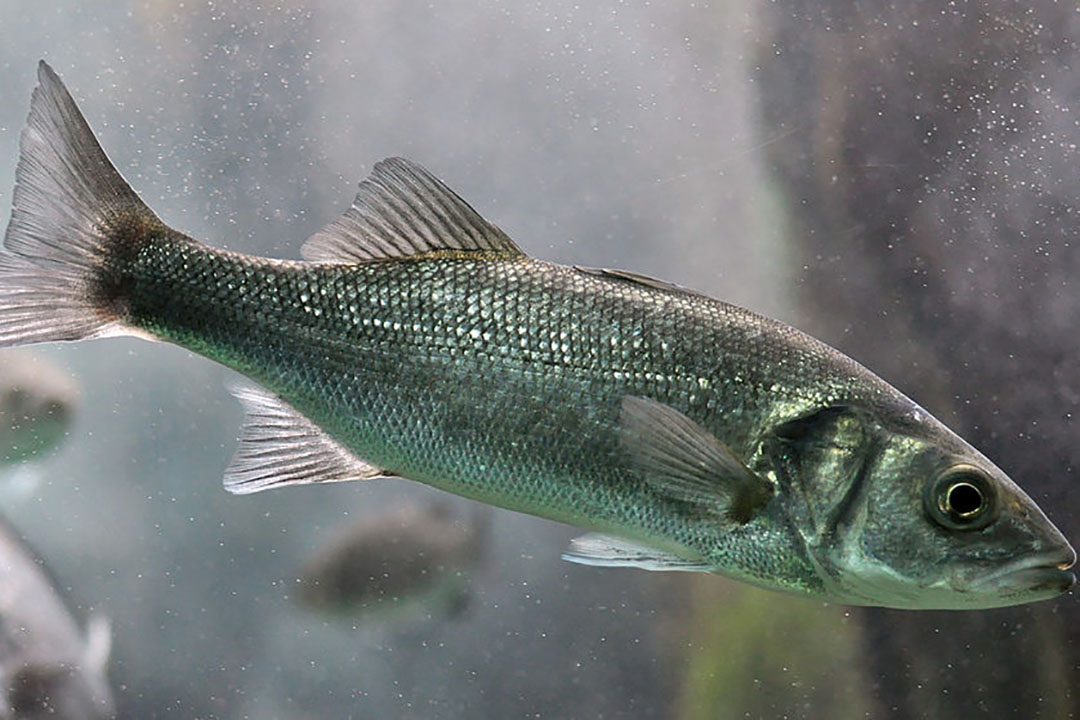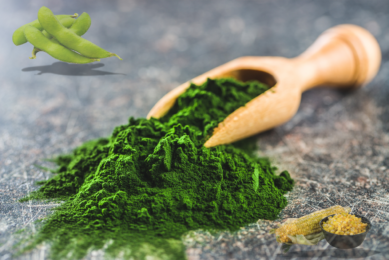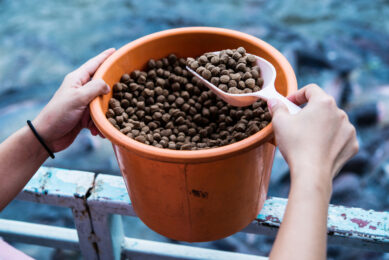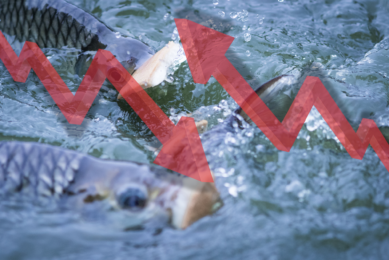Carnivorous sea bass does well without fish meal

The European sea bass is a carnivorous fish known to be highly dependent on the inclusion of fish meal in its diet. But is this really true? Trials with insect meal show different.
This is according to new data from trials done by the French insect company Ÿnsect in collaboration with the HCMR research institute in Greece.
Fish meal replaced by mealworms at different levels
The trials were done with European sea bass, a carnivorous fish known to be highly dependent on the inclusion of fish meal in its diet. Juveniles of 4g were fed for 9 weeks with 3 different treatment diets: a control group with 30% fish meal inclusion, TM 30 (30% fish meal replacement) and TM100 (100% fish meal replacement). The fish meal replacer used in this trial was an insect meal based on mealworms (Tenebrio molitor)*. After 9 weeks of feeding, 8 fish from each tank were anaesthetised and blood samples were collected. A histopathology procedure was carried out to assess gut health. 60 fish per group were kept for an additional challenge test with the most important pathogen in marine fish: Vibrio harveyi. The cumulative mortality and syndrome score were measured over 10 days.
Effect on FCR and weight gain
Both the TM30 and TM100 diets improved feed efficiency and weight gain when compared to the control group. The best results were obtained at TM30, with a weight gain of +13.7% higher than the control (29.2g vs 25.7g) and the FCR was significantly lower (-7%). After 9 weeks, the lowest Feed Conversion Rate (FCR) was 0.77 for TM100 and 0.87 for the control group, a reduction of 11.5%. The total feed intake was similar between all the treatment groups (Figure 1).
Better gut health, less mortaility
TM30 and TM100 reduced the appearance of abnormal intestinal villi in the gut from 5 in the control group to 2 (n=15). Gut health is improved. This is a breakthrough, and has never been previously assessed in research based on Tenebrio molitor meal. During the challenge test, TM30 showed a reduction of cumulative mortality by 45% (TM30: 18.3% vs 33.3% in the control). For the TM100, the cumulative mortality is 37%, not significantly different from the control group (Figure 2). The symptom scores also showed a similar pattern.
Use in preventive medicated feeds
This trial showed that insect meal boosts the anabolism (biosynthesis) of the fish. This was already proven in a trout trial in 2015 (+34% of weight gain and -15% of FCR). In previous trials, the insect meal used here was shown to increase the resistance of shrimp and salmon in stressful conditions. According to Ÿnsect, this insect meal has great potential to be implemented in preventive medicated feeds. This would also help to reduce the financial impact of diseases in aquaculture; bearing in mind that, on some fish or shrimp farms, the mortality rate can easily reach 40% due to a common bacterial infection. Every shrimp farmer is concerned about Vibrio parahaemolyticus – known to have a global cost of US$ 45 billion over the last decade. The insect meal tested here is effective on this pathogen and can deliver a fourfold reduction in mortality rates.











